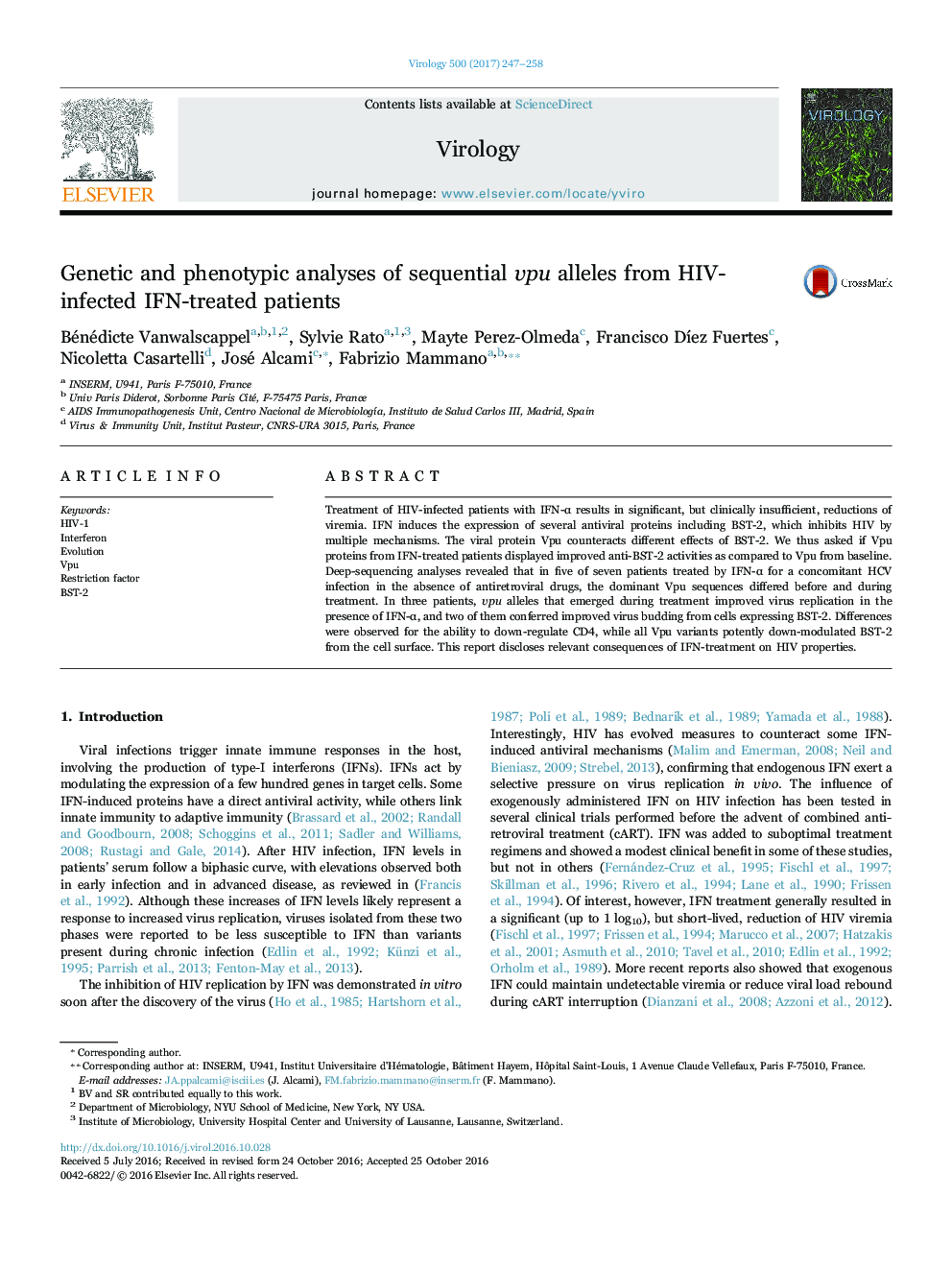| Article ID | Journal | Published Year | Pages | File Type |
|---|---|---|---|---|
| 5675141 | Virology | 2017 | 12 Pages |
Abstract
Treatment of HIV-infected patients with IFN-α results in significant, but clinically insufficient, reductions of viremia. IFN induces the expression of several antiviral proteins including BST-2, which inhibits HIV by multiple mechanisms. The viral protein Vpu counteracts different effects of BST-2. We thus asked if Vpu proteins from IFN-treated patients displayed improved anti-BST-2 activities as compared to Vpu from baseline. Deep-sequencing analyses revealed that in five of seven patients treated by IFN-α for a concomitant HCV infection in the absence of antiretroviral drugs, the dominant Vpu sequences differed before and during treatment. In three patients, vpu alleles that emerged during treatment improved virus replication in the presence of IFN-α, and two of them conferred improved virus budding from cells expressing BST-2. Differences were observed for the ability to down-regulate CD4, while all Vpu variants potently down-modulated BST-2 from the cell surface. This report discloses relevant consequences of IFN-treatment on HIV properties.
Related Topics
Life Sciences
Immunology and Microbiology
Virology
Authors
Bénédicte Vanwalscappel, Sylvie Rato, Mayte Perez-Olmeda, Francisco DÃez Fuertes, Nicoletta Casartelli, José Alcami, Fabrizio Mammano,
